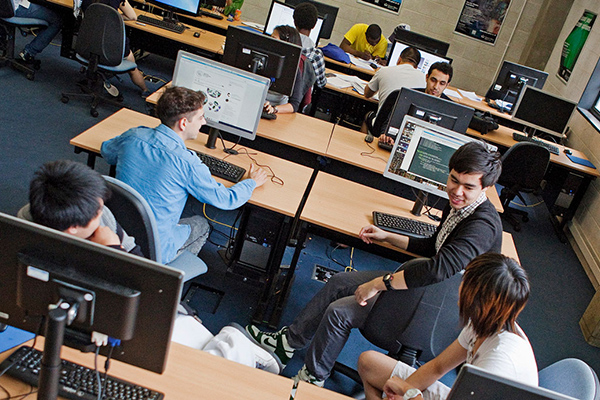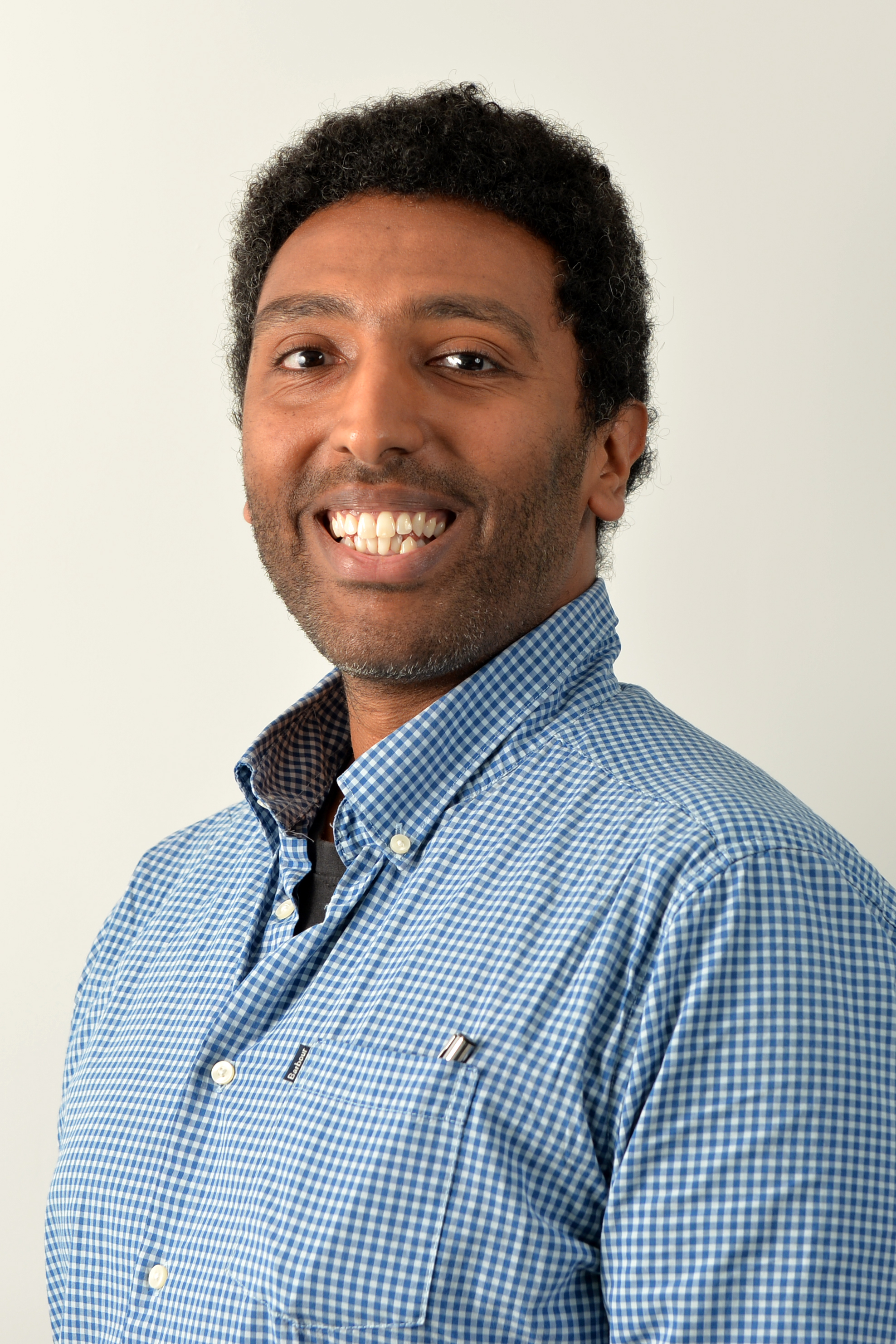Study options
- Starting in
- September 2025
- Location
- Mile End
- Fees
- Home: £15,250
Overseas: £29,950
EU/EEA/Swiss students
What you'll study
This multifaceted programme builds the knowledge and skills needed to kick-start your career in professional bioscience research, consulting, and development. Teaching is jointly delivered by experts in the School of Biological and Behavioural Sciences and The School of Mathematical Sciences and will cover areas such as applications of AI and Data Science in Biology, Ecology, and Biomedicine, alongside technical skills such as coding, statistics, and the analysis of large datasets. You’ll also benefit from Queen Mary’s strong links to the AI sector, with the university being a member of the Alan Turing Institute and home to the Digital Environment Research Institute (DERI), one of the UK’s leading centres for AI research and innovation.
In Semester A, you will cover essential shell command and HPC usage, coding for statistical data analysis, and an introduction to AI concepts, with a strong emphasis on real-world applications in bioinformatics.
In Semester B, you’ll explore the full range of AI applications in the biosciences, from established methodologies to the latest cutting-edge developments and trends. You'll also develop expertise in modern, computation-intensive statistical methods, gaining valuable hands-on experience in Queen Mary’s high-performance computing cluster, Apocrita.
In Semester C, you will carry out two group projects, solving bioscience problems using AI techniques to translate your knowledge into professional skills. The first project will provide a well-defined problem to help you structure an efficient group approach, while the second will present a more open-ended bioscience challenge, simulating real-world industry scenarios. Throughout the programme, you’ll have opportunities to network with peers from diverse academic and professional backgrounds, fostering valuable connections for future careers.
Located in London, the heart of the UK’s AI industry, this programme places you in a prime position to seize abundant job opportunities in this rapidly growing field.
Structure
- Eight compulsory taught modules
- Two group project modules
Compulsory/Core modules
This module provides you with an opportunity to further develop and apply skills learned during the previous MSc Artificial Intelligence in the Biosciences modules, by conducting a novel piece of Artificial Intelligence / machine learning work, typically within an active research group either within QMUL or at a partner organisation. The specific nature of each project will be determined through discussions between you, the course organiser and the project supervisor but will always involve bioscience problem involving complex data in a cutting edge area of biological or biomedical research. This serves as excellent preparation for future employment or PhD.
This module provides an introduction to data science and AI, focusing specifically on the analysis of molecular data produced by methods such as transcriptomics, proteomics and metabolomics. Lectures cover the methods, algorithms and resources used for tasks such as the identification and quantitation proteins and metabolites, determination of protein structure, discovery and recognition of patterns in these data using exploratory analysis and machine learning, data integration, interpretation of data in the context of prior knownledge, and large scale analysis of the interaction between biological molecules. Practical exercises are used to gain experience with software tools, data formats and databases of relevance to this field.
This module provides a hands-on introduction to computer programming (popularly known as 'coding') using a scripting language popular in the field. The focus is on producing robust software for repeatable data-centric scientific work. Key programming concepts are introduced, and these concepts are then brought together in answer biologically relevant questions.
This module is focussed on teaching statistical data analysis using the programming language R. The module will cover an introduction to coding with R, exploratory data analysis and visualisation, and fundamentals of statistical testing and learning. The module is taught through both theoretical lectures and computing practicals, the latter comprising of hands-on analysis of experimental data sets.
This module provides an introduction to the management and analysis of big data, focusing specifically on the analysis of genome sequence data. Lectures first introduce relevant data types and data handling skills. They subsequently cover the bioinformatics methods, algorithms and resources used for tasks such as read cleaning, genome assembly, gene finding, variant calling, population genomics, and caveats and quality control approaches for such analyses Practical exercises are used to imbue experience of the Unix command line, high performance computing, and the use of these technologies to run computationally intensive genome analysis tools.
This module will provide you an overview of successes and limitations of applications of artificial intelligence (AI) in basic and applied ecology and evolutionary biology. It will cover a wide range of topics such as monitoring and ID of species and individuals from image, video and sound; forecasting of population time series; species distribution modelling; modelling of derived metrics, e.g. for ecosystem service; automated taxonomic classification. Selected examples are developed in depth in both lectures and practicals.
This module will provide you an overview of successes and limitations of applications of artificial intelligence (AI) in physiology and biomedicine. It will cover a wide range of topics such as image diagnostic tools, medial risk assessment and prognosis, individualised medicine, drug discovery, protein folding, and classification of microbial communities. Selected examples are developed in depth in both lectures and practicals. Social, ethical, and economic implications are discussed.
In this module, students are organised into small teams (~3-4 members per team). All teams are given the same problem to solve: to accurately reconstruct missing data in a large, complex bioscience data set using machine learning techniques. Each team must design an appropriate ML methodology and implementation plan, with specific tasks assigned to individual team members. The distribution of effort within teams is documented through an in-team peer review mechanism. Each team member will present the team¿s work in a report. Reconstructions will be compared after reports are submitted. Since teams will develop their own quality criteria, there may be several ¿best¿ solutions.
Assessment
The programme will be assessed through an exciting and varied combination of essays, practical assignments, group projects, workshops and presentations.
The group projects are assessed on the data analysis code produced and the presentation of the project results in a report and an oral group presentation.
Teaching
This course has been developed and is taught by experts in their fields. You’ll attend a series of lectures, seminars, tutorials and workshops in the PC laboratory. There will be a mixture of both individual and group-based exercises and discussions.
You will also be expected to complete further hours of independent study by reading designated material, producing written assignments and completing projects. To help you along your journey, you’ll also be assigned an Academic Adviser who will guide and support you throughout the course.
Students are also strongly encouraged to attend the School Seminar series.
Where you'll learn
Facilities
- Full access to our online resources
- Extensive Library and IT facilities, including a subject librarian
- Mentors for non-programme related support, including careers advice
- Linux computer lab
- Apocrita – Queen Mary’s high performance computing cluster
- Brand new Graduate Centre, offering purpose-built study spaces and an exclusive rooftop common room
- Access to some of London’s outstanding facilities including the British Library, Senate House Library and Copac
Campus
You will be studying at the School of Biological and Behavioural Sciences and partially at the School of Mathematical Sciences on the Mile End campus in East London. The central location offers easy transport links to all areas of the capital and you have the opportunity to take advantage of all the capital has to offer, including access to our partner libraries across the city. London is the hub of the UK AI industry, which will place you in prime position for getting a job in the sector when you graduate.

About the School
School of Biological and Behavioural Sciences
The School of Biological and Behavioural Sciences is one of the UK’s leading research departments, with a multi-disciplinary approach to teaching and research. We are a large and dynamic school with strong links with industry, offering students a stimulating and supportive learning experience.
Queen Mary University is also part of the Russell Group - a body of leading UK universities dedicated to research and teaching excellence.
We also collaborate with the School of Geography on the Centre for the Aquatic Terrestrial Environment (CATE). The facilities of which, some students can access for specific projects or modules.
Career paths
Graduates of this program will have a distinct competitive advantage in seeking employment. Not only do they demonstrate that they can cross traditionally distant disciplines but they also will show that they understand the applications of AI to biology and biomedicine. The data analysis and coding skills that we teach are highly sought after not only by employers in the areas of biology and biomedicine, but across a wide range of sectors.
Graduates will find employment opportunities throughout the agro- and biotechnology industry, pharmaceutical companies, universities, medical research institutes, in governmental agencies, in non-profit organisations, and as data scientists, software engineers or consultants in a wide range of sectors.
Potential employers are invited to participate in the group project presentation seminars in Semester C and arrangements are made for networking between employers and students after the presentations.
- 93% of our postgraduate taught students are in employment or further study 15 months after graduating (HESA GOS, 2020/21).
- 78% of those in work are in highly skilled employment and earning over the median salary (HESA GOS, 2020/21).
- £28,114 The average UK salary 15 months after graduating for our postgraduates (HESA GOS, 2020/21).
Fees and funding
Full-time study
September 2025 | 1 year
- Home: £15,250
- Overseas: £29,950
EU/EEA/Swiss students
Conditional deposit
Home: Not applicable
Overseas: £2000
Information about deposits
Queen Mary alumni can get a £1000, 10% or 20% discount on their fees depending on the programme of study. Find out more about the Alumni Loyalty Award
Funding
There are a number of ways you can fund your postgraduate degree.
- Scholarships and bursaries
- Postgraduate loans (UK students)
- Country-specific scholarships for international students
Our Advice and Counselling service offers specialist support on financial issues, which you can access as soon as you apply for a place at Queen Mary. Before you apply, you can access our funding guides and advice on managing your money:
Entry requirements
UK
Degree requirements
A 2:1 or above at undergraduate level in a Science subject such as Biology, Chemistry, Mathematics or a related subject.
Other routes
Applicants with a good 2:2 degree (55% or above) will be considered on an individual basis.
Find out more about how to apply for our postgraduate taught courses.
International
English language requirements
The English language requirements for our programmes are indicated by English bands, and therefore the specific test and score acceptable is based on the band assigned to the academic department within which your chosen course of study is administered. Note that for some academic departments there are programmes with non-standard English language requirements.
The English Language requirements for entry to postgraduate taught and research programmes in the School of Biological and Behavioural Sciences falls within the following English band:
Band 4: IELTS (Academic) minimum score 6.5 overall with 6.0 in each of Writing, Listening, Reading and Speaking
Please note, there are some postgraduate programmes with non-standard English language requirements in this School.
We accept a range of English tests and qualifications categorised in our English bands for you to demonstrate your level of English Language proficiency. See all accepted English tests that we deem equivalent to these IELTS scores.
Visas and immigration
Find out how to apply for a student visa.






